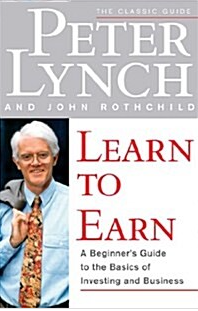- 0
- 타이쿤
- 조회 수 107
Learn to EarnㅡPeter Yynch( P.74)

Karl Marx 칼 마르크스
The most influential communist economic theories came out of the head of Karl Marx, a philosopher who was born in 1818. Marx was German, but he developed most of his ideas in London, where his wife and children were stuck in a cold apartment with little to eat. Even though his favorite subject was economics, he was a dunce at personal finance.
가장 영향력 있는 공산주의 경제 이론은 1818년에 태어난 철학자 칼 마르크스의 머리에서 나왔다. 마르크스는 독일인이었지만, 그의 아내와 아이들이 먹을 것도 없이 추운 아파트에 갇혀 있던 런던에서 대부분의 아이디어를 발전시켰다. 그가 가장 좋아하는 과목은 경제학이었지만, 그는 개인적인 금융에 대해서는 멍청했다.
Marx tried to reduce capitalism to a formula, the way Newton did with gravity. His book Das Kapital became the Bible of communists everywhere, and outside the Bible, one could argue it was the most influential book ever written. It convinced Lenin and other influential Russians to set up a communist state after they won the Russian Revolution.
마르크스는 뉴턴이 중력을 다룬 것처럼 자본주의를 공식으로 축소하려고 했다. 그의 책인 자본론은 전 세계 공산주의자들의 성경이 되었고, 성경을 제외하면 역사상 가장 영향력 있는 책이라고 주장할 수 있다. 이 책은 레닌과 다른 영향력 있는 러시아인들이 러시아 혁명에서 승리한 후 공산주의 국가를 세우도록 설득했다.
According to Marx, capitalism was doomed, because as business grew, and more and more people were harnessed to machines, the value of their labor was bound to decline. Workers of the world would be required to work longer and longer hours for less and less pay, until eventually they would get mad and burn down the factories and join the Communist party.
마르크스에 따르면, 자본주의는 운명이 정해졌다고 한다. 사업이 성장하고 점점 더 많은 사람들이 기계에 얽매이면서 노동의 가치가 떨어질 수밖에 없었기 때문이다. 세계의 노동자들은 점점 더 적은 급여를 위해 점점 더 오래 일해야 했고, 결국 화가 나서 공장을 불태우고 공산당에 가입했다.
It's true that it was no fun to work in a factory at the time Marx was writing his book. Factories were dark, noisy, dirty, and dangerous. Women and children were forced to put in twelve to eighteen hours a day tending the machines, and they earned very little for their efforts. Some were herded into factories against their will, and many caught diseases there. The air was polluted from the smokestacks that blackened the sky with soot.
마르크스가 책을 쓸 당시 공장에서 일하는 것은 재미없는 일이었다. 공장은 어둡고 시끄럽고 더럽고 위험했다. 여성과 어린이는 하루에 12~18시간 동안 기계를 관리해야 했고, 그들의 노고에 대한 보상은 거의 없었다. 일부는 자신의 의지와 상관없이 공장으로 몰려들었고, 많은 사람들이 그곳에서 질병에 걸렸다. 그을음으로 하늘을 검게 칠한 굴뚝에서 공기가 오염되었다.
Marx saw all this and hated what he saw (even though his family was no better off than the average factory worker's), and he was determined to prove that the misery in the factories wouldn't last. But his theories were totally out of whack. Instea of people having to work harder and harder for less and less money, their hours got shorter and their paychecks got bigger, because factories installed updated equipment, which enabled each worker to produce more merchandise in the same amount of time.
마르크스는 이 모든 것을 보고 자신이 본 것을 싫어했다(그의 가족이 평균적인 공장 노동자보다 더 나은 것은 아니었지만). 그는 공장의 비참함이 오래가지 않을 것이라는 것을 증명하기로 결심했다. 하지만 그의 이론은 완전히 어긋났다. 사람들이 점점 더 적은 돈을 위해 점점 더 열심히 일해야 하는 대신, 그들의 근무 시간은 짧아지고 급여는 더 커졌다. 공장에서 최신 장비를 설치했기 때문에 각 노동자가 같은 시간에 더 많은 상품을 생산할 수 있었다.
With more efficient machinery, the workers' time became more valuable, not less, and the factories could afford to raise the workers' wages. These wages weren't always raised without a fight, but often enough, they were raised, and instead of the working class being doomed the way Marx said it was, the working conditions got cleaned up a bit, and the workers took home more cash. That's how prosperity came to the countries with the most factories-England, the United States, and those of Western Europe-while the rest of the world was stuck in a rut with a few land barons owning everything.
더 효율적인 기계로 인해 노동자의 시간은 더 귀중해졌고, 공장은 노동자의 임금을 인상할 여유가 있었다. 이 임금은 항상 싸움 없이 인상된 것은 아니었지만, 종종 인상되었고, 마르크스가 말한 대로 노동계급이 파멸하는 대신, 노동 조건이 약간 개선되었고 노동자들은 더 많은 돈을 집으로 가져갔다. 공장이 가장 많은 나라들, 즉 영국, 미국, 서유럽 국가들은 번영을 누렸지만 나머지 세계는 소수의 토지 귀족이 모든 것을 소유하는 틀에 갇혔다.
So much for Marx and his fancy equations. It was communism that was doomed, because the standard of living in communist countries continued to decline, while in capitalist countries, it continued to rise. It was the Russian and Eastern European workers who eventually overthrew the communist system, in favor of ours.
마르크스와 그의 공상적인 방정식은 여기까지이다. 운명이 정해진 것은 공산주의였다. 공산주의 국가의 생활 수준은 계속 하락했지만 자본주의 국가의 생활 수준은 계속 상승했다. 결국 공산주의 체제를 전복하고 우리의 체제를 선택한 것은 러시아와 동유럽 노동자들이었다.




